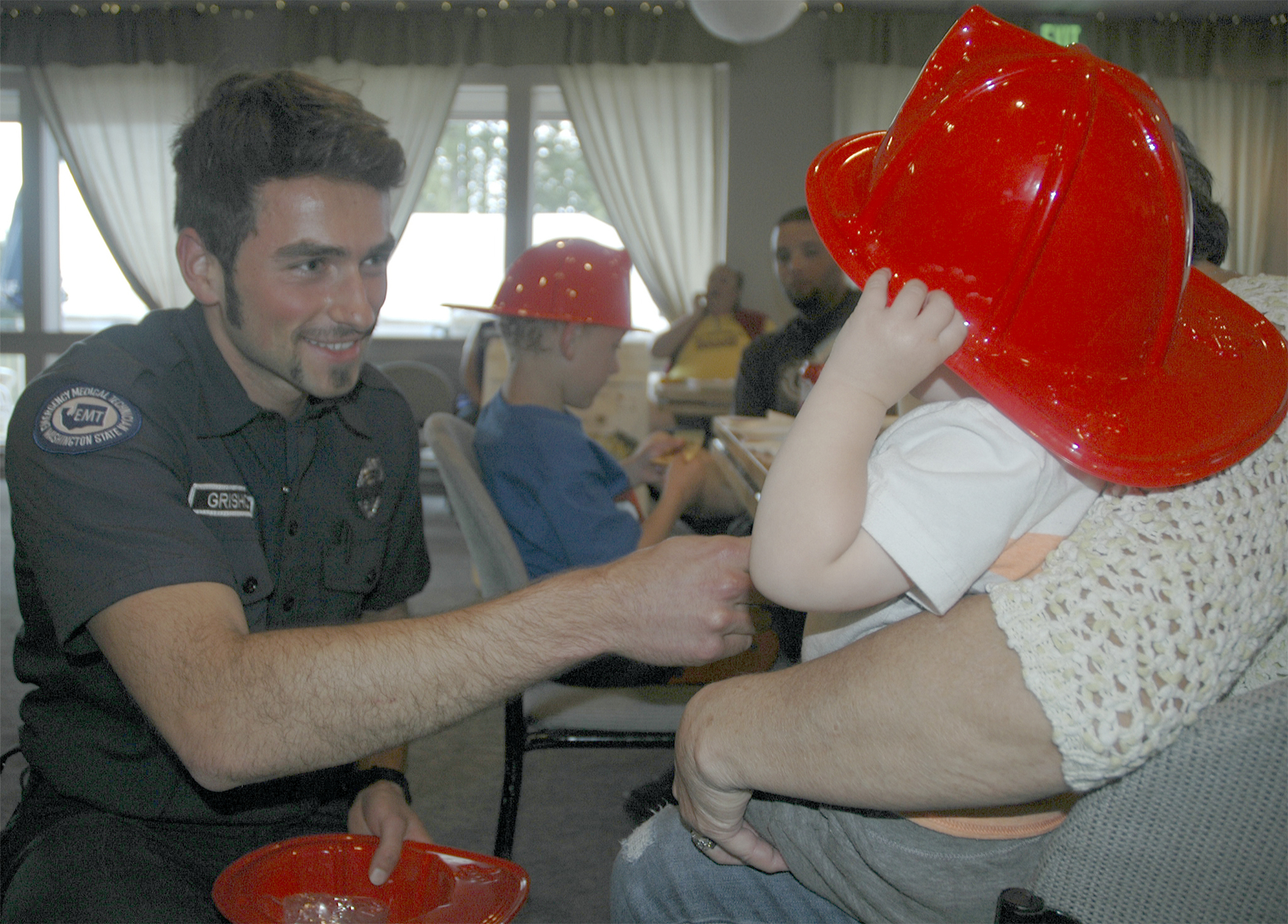ARLINGTON — Gleneagle was but one of the 12 neighborhoods in Arlington that hosted the annual National Night Out Against Crime Aug. 2, but its golf course country club was packed with residents eager to hear from police and city officials.
City Councilwoman Jesica Stickles was joined by Chris Young, community and economic development director, in kicking off the presentations, during which they summarized Arlington’s progress in dealing with panhandling and homelessness. Stickles admitted that an ACLU lawsuit had reversed some of their restrictions on panhandling, but noted that the city had passed a law allowing police to clear out squatters’ sites.
Although she encouraged locals to call 911 for non-emergency calls about suspicious activity, Stickles also offered the non-emergency number of 425-407-3999 for those who still worry that calling 911 would be too much. She touted this “See Something, Say Something” advice as an essential component of the city’s All-In anti-crime campaign.
Young credited community activists with assisting police through volunteer-driven initiatives such as Vikki McMurray’s graffiti wipe-outs and Jennifer Smith’s clean-out of a homeless encampment near the Smokey Point Safeway.
Stickles expanded the discussion into land use by explaining that the city intends to make use of its uncultivated open spaces, thus depriving squatters and criminals of places to camp by installing mixed-use retail and residential developments. Young believes this will increase walkability and better accommodate seniors.
Arlington firefighters Elliot Grishchenko and Tyler Ackley joined police detective Mike Sargent in answering questions. Sargent acknowledged that many speeders on Jordan Road don’t get up to full speed until they’re outside city limits, which make it difficult for local police to deal with them, without enlisting the county’s aid.
“But still call us to let us know,” Sargent said. “I’ve gotten calls from folks about kids who are out at two in the morning on their skateboards. I love taking those calls. If it’s important to you, it’s important to us.”
When asked what led to the local drug epidemic, Sargent pointed out that most of the drug dealers local police apprehend tend to be small-time street-level dealers who are themselves addicts.
“Most of those folks need rehabilitation more than anything else,” Sargent said. “Yes, it’s a crime to use illegal drugs, but addiction itself is not a crime.”
Like Young, Sargent hopes to see police partner with social workers to respond to such cases.
Another attendee voiced suspicions about a door-to-door exterminator. Sargent told him to ask to see the man’s business and peddler’s licenses, both of which can be obtained from the city.
“If he doesn’t have both of those, it’s illegal solicitation,” Sargent said.
Police Chief Jonathan Ventura noted that the number of local neighborhoods taking part in the Night Out Against Crime had doubled since last year. Along with the roughly 30 community meetings he’s participated in over the past year, he feels pleased to see citizens engaged with police so much.
“We live in this community too,” Ventura said. “Our kids go to school here, right alongside yours.”
Although Ventura doubts he’ll ever have as many officers as he’d like, he sees many of the city’s problems as better solved by treatment centers for addiction and mental illness, as well as low-barrier housing.
“I understand that Arlington is a very generous community, but instead of giving to panhandlers, give that money to the charities that serve their needs,” Ventura added.







